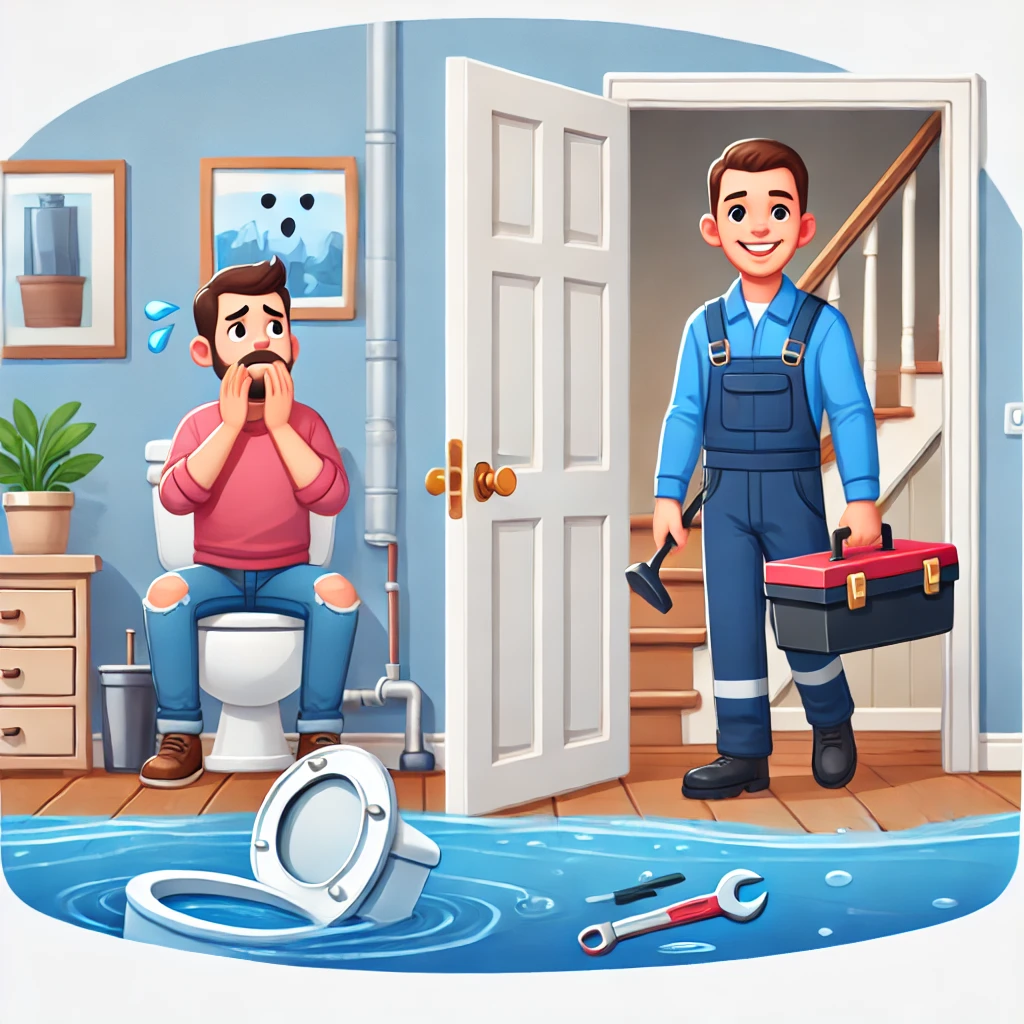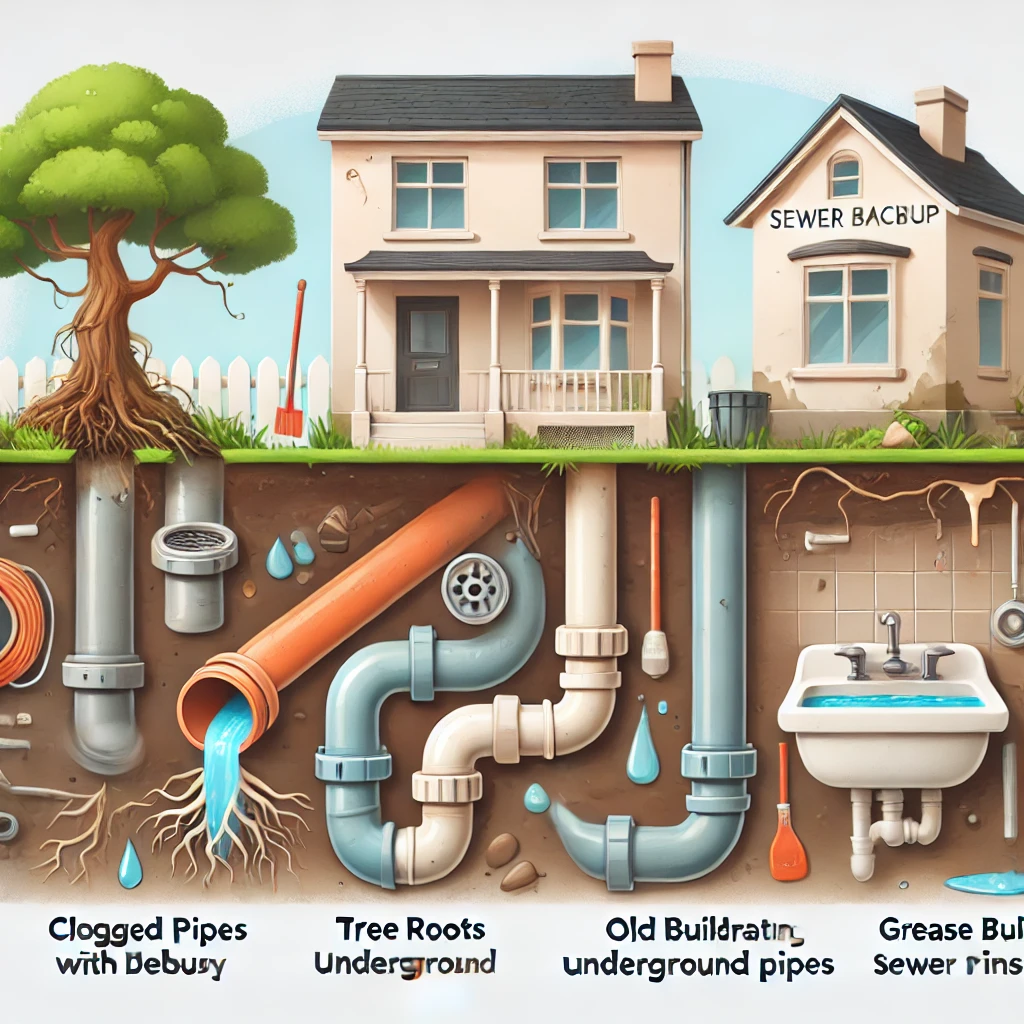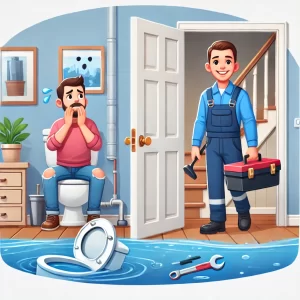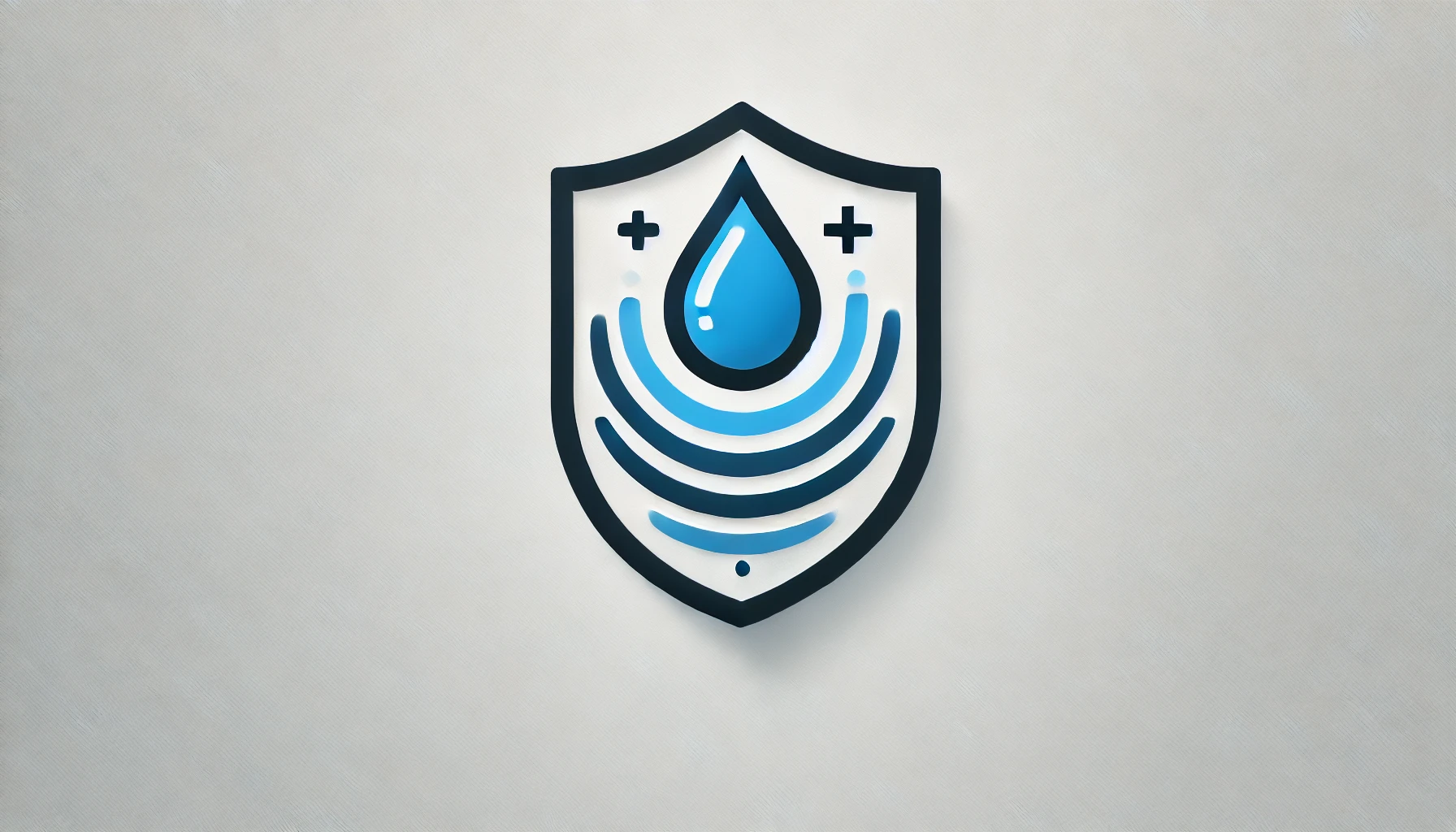Preventing sewer backups in Quebec: Protect your home
 In Quebec, it’s not uncommon to face a sewer backup. Whether you live in an older neighborhood or a newer residential area, no one likes to see wastewater suddenly rising through the toilet bowl or sinks. Beyond the obvious inconveniences—bad odors, filth, and risk of contamination—a backup can cause significant damage to your home if you don’t take the necessary steps to prevent it. In this article, we’ll cover why these problems are so common in the province, present the most effective solutions, and explain when it’s wise to call a qualified plumber. By adopting good maintenance practices and knowing the right actions to take, you’ll maximize your chances of avoiding the hassle and high costs that sewer backups can cause.
In Quebec, it’s not uncommon to face a sewer backup. Whether you live in an older neighborhood or a newer residential area, no one likes to see wastewater suddenly rising through the toilet bowl or sinks. Beyond the obvious inconveniences—bad odors, filth, and risk of contamination—a backup can cause significant damage to your home if you don’t take the necessary steps to prevent it. In this article, we’ll cover why these problems are so common in the province, present the most effective solutions, and explain when it’s wise to call a qualified plumber. By adopting good maintenance practices and knowing the right actions to take, you’ll maximize your chances of avoiding the hassle and high costs that sewer backups can cause.
Why are sewer backups so common in Quebec?
Visit climate Quebec's climate, punctuated by freezes and thaws, puts pipes to a severe test. Over the years, pipes wear out, crack or become blocked, allowing water to accumulate and eventually back up into homes. What's more, some older municipal infrastructures are not always adapted to today's realities, which can exacerbate the problem.
It’s also important to consider the growing urbanization. With more construction, sewer systems are increasingly strained. Tree roots infiltrating pipes, grease poured down sinks, and various types of debris are all factors that contribute to clogged drains. Lastly, some homeowners are not always familiar with how these systems work and may not realize the importance of regularly checking the condition of their drains. In Quebec, raising awareness about the importance of prevention is therefore essential.
Common causes of sewer backup
 1. Accumulation of debris and inappropriate objects
1. Accumulation of debris and inappropriate objects
Many people believe that everything that goes down the sink or toilet is automatically flushed away without issue. In reality, drainage depends on the quality and capacity of the pipes. Food debris, grease residue, disinfectant wipes, and even certain types of paper can clump together and form a clog. Over time, this blockage gradually obstructs the flow, eventually leading to a sewer backup.
2. Tree root infiltration
Trees, especially those planted near pipes, naturally develop roots in search of water and nutrients. Unfortunately, these roots can penetrate older or damaged pipes, causing cracks and eventually blockages. This phenomenon is particularly common in older neighborhoods, where pipes are sometimes made of materials that are more easily damaged.
3. Old pipes and obsolete infrastructure
In Quebec, many areas have a relatively old sewer system. Cast iron or clay pipes, still found in some municipalities, have a limited lifespan. Over time, they can deteriorate, corrode, or weaken, making it easier for cracks, breaks, and consequently backups to occur. When living in an older building, it is even more important to regularly check the condition of the pipes and to plan proper preventive maintenance.
5 solutions to prevent a sewer backup
Fortunately, there are practical steps you can take to significantly reduce the risks. The five solutions below, tested and approved by numerous experts, are considered to be pillars of the prevention in Quebec.
- Install a non-return valve
- Regular drain unclogging
- Avoid disposing of grease or objects in sinks
- Camera inspection
- Consult a qualified plumber
1. Install a non-return valve
A non-return valve is often the first line of defence against an accident. sewer backup. This is a device placed directly on the drain pipe, which prevents water from flowing back into the house. When the pressure of the public network is normal, the valve remains open, allowing the wastewater to flow into the sewer. But if the external pressure is higher than that of your home, the valve closes automatically, blocking the flow. This simple installation can make the difference between a flooded basement and an untouched one, especially during periods of heavy rain or seasonal flooding in the summer. Quebec.
2. Regular drain unclogging
Periodic drain cleaning is another way to reduce risks. Rather than waiting for water to back up before taking action, it’s wise to schedule maintenance of your pipes once or twice a year, depending on the age and condition of your property. A professional will have the proper equipment to thoroughly clean the pipe, remove built-up scale, early root growth, and other blockage factors. If you neglect this maintenance, you might end up with a clogged pipe when you least expect it.
3. Avoid disposing of grease or objects in sinks
A large portion of backup issues comes from improper use of sinks and toilets. When you pour a pan of grease into the sink, the grease cools and gradually solidifies, forming a sticky layer on the inner walls of the pipes. Add to that leftover food or non-dissolvable objects, and you quickly end up with a clog. Developing good habits, like disposing of cooking waste in a sealed container or proper compost, can go a long way in preserving your pipes.
4. Camera inspection
Camera inspection is an increasingly accessible method for the general public, involving the insertion of a waterproof camera into the pipe to detect possible cracks, roots, or major buildups. The main advantage of this solution is that it allows for precise localization of the issue and targeted repair or cleaning. In Quebec, many plumbing companies offer this service, which is particularly useful if you’re already noticing slow drainage in your home. It’s better to detect the source of the blockage before it turns into a full-on sewer backup.
5. Consult a qualified plumber
A qualified plumber is your best ally for diagnosing the condition of your pipes and offering appropriate solutions. Whether it’s for a drain cleaning, installing a backwater valve, or performing a camera inspection, their expertise can save you both time and money. In a plumbing emergency, such as the beginning of a backup, they can also quickly implement the necessary measures to limit damage. Don’t hesitate to request a quote and compare offers from several companies, as rates may vary from one professional to another.
The importance of regular maintenance
In an environment where climate and urbanization play a significant role, regular maintenance of your pipes should not be seen as an unnecessary expense, but rather as a long-term investment. By making a habit of checking the condition of your pipes, scheduling preventive drain cleaning, and monitoring for any unusual signs (odors, noises, etc.), you can avoid more serious issues. A simple annual inspection can detect anomalies that, if ignored, could lead to a sudden and costly sewer backup.
The financial aspect is also worth considering. The cost of a backup can include replacing flooring, damaged walls, or even irrecoverable furniture—not to mention the stress it can cause for the entire family. A modest investment in drain maintenance is therefore well justified when compared to the significant expenses associated with interior flood restoration work.
When should you call a qualified plumber?
 It's sometimes difficult to determine the ideal time to contact an expert. However, there are certain signals that should alert you:
It's sometimes difficult to determine the ideal time to contact an expert. However, there are certain signals that should alert you:
- Water drains more slowly than usual, both in the shower and the toilet
- From foul odors emanating from pipes
- You hear unusual noises or prolonged gurgling in your pipes.
- You notice water rising, even slightly, in your basement
In these situations, it is highly recommended to call a professional to prevent the problem from getting worse. A plumber can perform a quick inspection, assess the severity of the issue, and suggest appropriate solutions. Sometimes, a simple drain cleaning will suffice; other times, repair or pipe replacement work may be necessary. In any case, it’s better to act early to minimize damage.
The benefits of a professional interview
Requesting professional plumbing services doesn’t just mean reacting to an existing problem. Specialized companies typically offer preventive maintenance packages that include pipe cleaning, camera inspections, and personalized advice to help extend the life of your sewer system. This type of preventive visit is especially relevant for owners of older homes. In these properties, the risk of backups is higher due to the natural aging of infrastructure.
In addition, the expertise of a plumber allows you to benefit from targeted advice on best practices. Whether you want to reduce your water consumption, choose appropriate cleaning products, or improve the efficiency of your pipes, a professional will guide you toward the best options. Investing in such a trusted relationship can also help you respond quickly in case of an emergency, as you’ll know exactly who to contact and how to proceed.
Ecological impact
One aspect that is often overlooked is the ecological impact of a sewer backup. When wastewater overflows, it can contaminate nearby soil and water sources. What's more, a poorly maintained plumbing system often uses more energy and water to operate, increasing your environmental footprint. By keeping your pipes clean and reducing the risk of leaks, you're helping to protect the local environment. Many of our plumbers in Quebec take this dimension seriously and can offer you nature-friendly solutions.
Useful resources to find out more
If you would like to learn more about the subject, here are a few resources to help you:
- The City of Montrealwhich provides information on the management of sewers and wastewater
- The Wikipedia pages dedicated to sewerage and sewer infrastructure.
- Specialized plumbing blogs in Quebec that regularly cover prevention and maintenance topics
For personalized support or professional drain cleaning, feel free to explore the various plumbing services available in your area. You will often find dedicated pages for plumbing in Montreal or elsewhere in Quebec, with a detailed list of available services.
In conclusion, a sewer backup is not inevitable, even though it remains a relatively common issue in Quebec. With a solid understanding of the potential causes, the implementation of preventive solutions (such as installing a backwater valve or performing a camera inspection), and regular maintenance of your pipes, you can significantly reduce the risk of flooding and contamination. The key is to take action before the situation escalates into a costly disaster—both financially and emotionally.
Don’t forget that in case of doubt or recurring problems, calling on a qualified plumber is more than wise — it’s an investment in the health of your home. Companies specialized in drain unclogging and sewer maintenance are available to assess the situation and offer tailored solutions. Ultimately, protecting your home from sewer backups means not only taking care of your property, but also ensuring your family’s long-term peace of mind.
